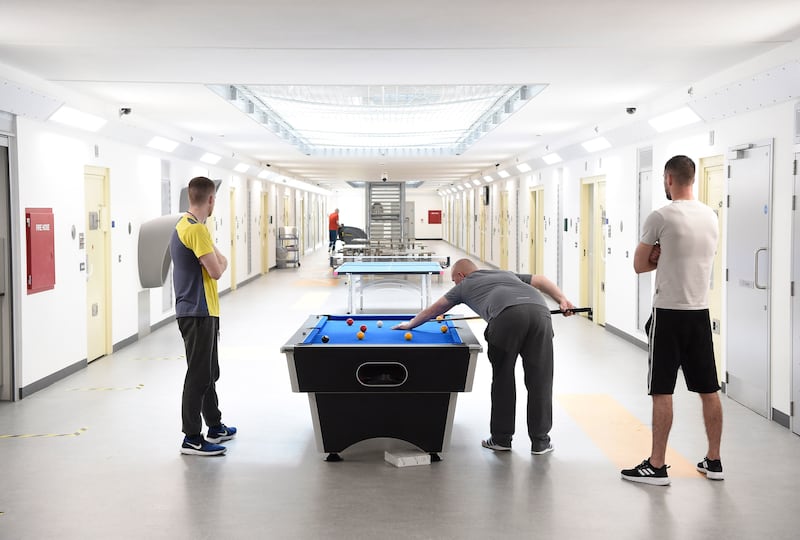Northern Ireland’s prison population has risen by almost 40% in three years, the Stormont assembly has heard.
Justice Minister Naomi Long said the total prison population was 1,374 on April 1, 2021, and has risen by 37% to 1,886 on April 1, 2024.
Speaking during question time for her department in the assembly, Ms Long said the rise has increased pressure on accommodation at the largest prison in the north, HMP Maghaberry in Co Antrim.
She said two houses of accommodation – Foyle and Erne – have been reopened at Maghaberry.

“Despite the pressures of an increasing prisoner population, prison officers continue to perform their duties with dedication, professionalism and skill,” she said.
“On April 1 2021, the total prison population in Northern Ireland was 1,374. On April 1 this year, the population had increased by 37% to 1,886.”
Ms Long said Foyle and Erne has previously been closed when Davis House was built in 2019.
“They are much less suitable environments for prisoners and more staff intensive to operate,” she said.
“Each square house can accommodate approximately 130 prisoners. On April 1, there were 54 prisoners in Erne House. Once Erne House reaches capacity, the only remaining accommodation is in Lagan (House), which is also a square house. Whilst ready for use, any decision to open Lagan is finely balanced, meaning that Northern Ireland Prison Service would be using its only contingency accommodation, for use if there was, for example, an incident with regard to infrastructure that put another residential area out of use.”

In terms of the other prisoners in Northern Ireland, Ms Long said HMP Magilligan in Co Derry is being “carefully managed to sustain it as close to capacity of 500 prisoners as possible to alleviate ongoing pressure in Maghaberry”.
“There are no immediate concerns about the capacity of Hydebank. If the female population continues to increase however it may be necessary to reconfigure the use of accommodation on that side also,” she said.
Ms Long also described many in the prison system as having complex needs.
She said this year, as of April, 30% of the prisoner community are recorded as having a mental health issue, 51% recorded as having an addiction and 53% as having a history of suicide attempts or self-harm.
“These are people with incredibly complex needs reflective of many of the needs we see in community, but it is undoubtedly concentrated in the prison population,” she said.
“That is not something that the Department of Justice itself can resolve. It is something that the Department of Health, the Department for Communities and indeed other ministers need to make a contribution towards addressing.”



